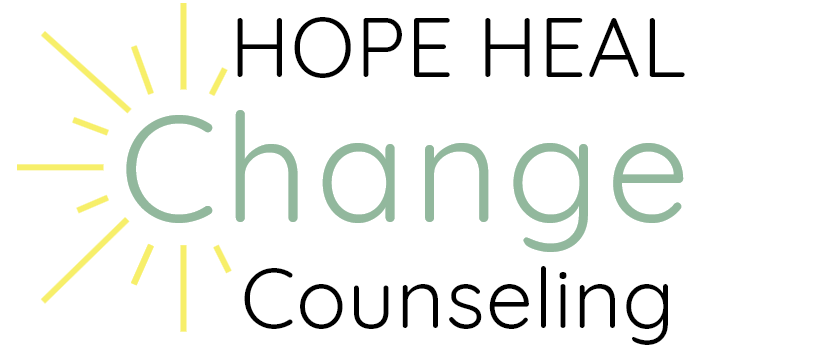**Typically I work with individuals 12 years of age and up.
While I am trained to work with just about any mental health concern or disorder, each therapist tends to gravitate towards a few topics. If you are struggling with something that you do not see on this list, please feel free to contact me to talk more about it. If I am not comfortable taking your case, I would be more than happy to find someone that will.
Know Thyself: I want to be very upfront and transparent with my approach to counseling. I believe that one of the tallest tasks in our lives in loving things that we don’t understand–this includes ourselves. So while you read through my specialities and areas I like to work with, know that the ultimate goal is great self-understanding. To understand what our relationship is with ourselves. We’re not crazy, even if we might feel like it sometimes. If we hate ourselves, it can lead to all sorts of horrible outcomes: depression, anxiety, etc. So, at the end of treatment, if you know yourself better it’ll be much easier to love yourself. And when we love ourselves, so many of our symptoms and challenges seem to melt away. You’ll see what I mean.
Pre-teens/Teens/Young Adults: As I started my career, I found that I began seeing many young people right off the bat. I like to think that I have a way of connecting to young people. As a former teacher and coach, I quickly realized that it is more difficult than ever to be a young person. Constant connection via technology, higher expectations and the need for instant gratification has been a recipe for anxiety, anger, low self-esteem and depression. As a kid (and even as an adult) a lot of our self-worth comes from peer approval. Now that teens and young adults are constantly connected to each other, there is endless opportunities for let-downs and disappointment. Working with minors is a different situation and requires support from parents. But together, great things can happen for young people in therapy that can have a lasting ripple effect in their lives.
Relationship Conflict: While I do work with couples, a lot of my work deals with people working through a tough relationship conflict. This could be with your significant other, family member, friend, boss or neighbor. Often times, during individual sessions with someone working on relationship conflict, we will explore the root and nature of the conflict and begin to discuss how you would want to handle said conflict. This often leads to conversations about communication styles, self-efficacy and self-identity (who we want to be in the face of this conflict). I can tell you that the absolute worst thing you can do if you’re having a conflict with someone (especially someone you really care about) is suppress your feelings. This will lead to resentment and an emotional distance which is very hard to counteract. Working through relationship conflict is healthy and can lead to a happier life. Studies often show that rich and gratuitous relationships lead to a longer and more meaningful life.
Trauma: I call trauma the “Disease of Self-Hate”. A traumatic event or series of traumatic events can change the course of our lives. Moreover, it alters how the brain perceives the world around you. Specifically, people that have experienced trauma are more likely to be in fight-or-flight response more often and for longer amounts of time (the brain is altered in MANY other ways). Trauma can lead us to this place of “who will want to deal with me and all my stuff? Best to isolate myself from the world”. If you’re reading this, please know that there is a path to a happy life. I will ask you to really consider the relationship with a lot of different parts of yourself and, together, we will rebuild your relationship with you in a healthy and loving way.
Sports Counseling: I feel so lucky to be able to say that I am affiliated with the Detroit Lions organization as a part of their wellness team. However, long before that connection, I have been working with high-level high school and college athletes. I’ve worked with a variety of presenting concerns with these athletes including: basic mental health monitoring, performance enhancement, mindfulness, injury recovery and more. Working with athletes is a joy and also presents a unique challenge as these folks usually have high expectations for themselves and aren’t always use to “slowing things down” which counseling can represent sometimes. However, sports counseling and psychology is a topic trending up in American sports and high level athletes are finding it worth the investment.
Grief: In grief, life changes without your permission. I immediately began working with grief clients on an individual and grief basis as I started my counseling career. Grief comes in many different forms and is highly individualized. In other words, there is no right or wrong way to go through the grieving process. Often times in grief, it will unfortunately be up to the grieving person to seek out their own support. This doesn’t mean that there aren’t people who love them dearly, but often times everyone around them is grieving that same death making it difficult to be there for one another.
Divorce and its implications: Divorce is a lot like grief work as it is an enormous loss in life. When we think about all the losses that can come with divorce—emotionally, spiritually, financially and the presence of that person, it can be overwhelming and mimic the stages of grief. Moreover, I have worked with many children whose parents are going through a divorce. A divorce is hard enough for the two people that are separating, but can be just as hard on the other people within the family unit. It’s important to work through your feelings while experiencing such a traumatic event and if you have children, it’s important that they have someone to work with to help them through their parents divorce. It can be even more important knowing that they have the support of their parents to make sure they are doing okay.
Depression: The word depression is thrown around loosely in our society today. “I’m feeling so depressed,” or, “I’ve been so down and depressed lately”. There is a big difference between feeling sad and exhibiting features of depression. Depressions is a very serious mental health concern and can lead to feeling of: minimal self-worth, anger, sadness/HOPELESSNESS, anxiety/agitation and thoughts of suicide. Moreover, depression can have physical manifestations as well such as: distribution in sleep patters, trouble thinking or concentrating, loss in sex drive, loss of interest in things you usually enjoy, reduced appetite and aches/pains. If you think you meet some of these criteria, it’s important to seek help right away. If you’re having suicidal thoughts, please call the suicide hotline at 1-800-273-8255. An online chat is also offered. If you feel like you are in imminent danger to yourself, go to the nearest emergency room or call 911.
Anxiety/Panic: With anxiety and panic attacks there is both good and bad news. The bad news first—anxiety can be debilitating and lead to constant state of worry, racing thoughts or fear of things to happen. Often times, in a state of anxiety, we imagine the worst possible scenarios and sometimes that anticipatory fear can lead to a panic attack. Other times, panic attacks can come out of the blue and hit us completely un-cued. Panic attacks have often been described as the feeling of dying. Tight chest, racing heart, feeling faint, sweating, racing thoughts to an extreme and more. The good news is that anxiety and panic attacks are very treatable via therapy. Moreover, it’s important to remember that panic attacks cannot harm you—as much as it might feel like they can. Generally, Cognitive Behavioral Therapy can be an effective treatment and panic attacks can sometimes begin to dissipate after just a few sessions (sometimes sooner and sometimes more treatment is required). And by the way, anxiety is a normal human function. Anxiety can keep us safe and it’s something that we all experience at one point or another. It’s when anxiety gets to the point of consuming or preventing you from enjoying life.
Career Counseling: I was lucky enough to begin my counseling career as a Career Advisor at Oakland University Adult Career Counseling Center where I was trained in assessments, inventories and, of course, how to navigate job transition. Job loss, job transition, or re-entering the work force can present a variety of challenges and can take a mental, emotional, physical and spiritual toll. It’s important to seek guidance during such a difficult time.

**Don’t see your counseling need on this list? Give me a call for a no-cost consultation and we can talk about a plan to get you the help you are seeking.
